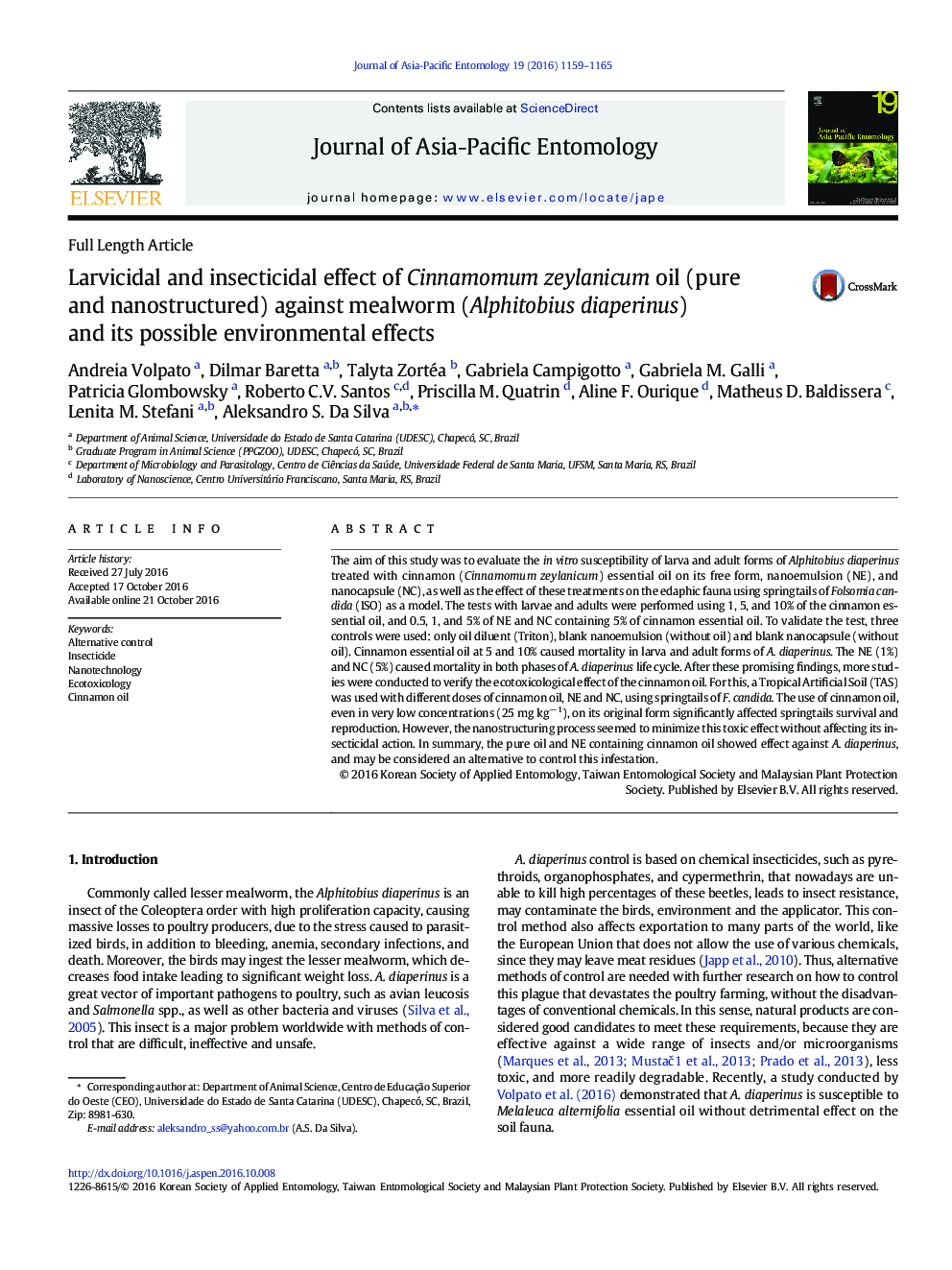| کد مقاله | کد نشریه | سال انتشار | مقاله انگلیسی | نسخه تمام متن |
|---|---|---|---|---|
| 4524374 | 1412976 | 2016 | 7 صفحه PDF | دانلود رایگان |

• Alphitobius diaperinus is a mealworm aviary that causes large economic losses.
• Control of the mealworm is made with chemicals, but alternative forms have emerged.
• Cinnamon oil kills mealworm, but on its original form affects springtails survival.
• The nanoemulsions is a formulation that can be used to control de A. diaperinus.
• No toxic effect on the springtails (biological marker) was observed to nanoemulsion.
The aim of this study was to evaluate the in vitro susceptibility of larva and adult forms of Alphitobius diaperinus treated with cinnamon (Cinnamomum zeylanicum) essential oil on its free form, nanoemulsion (NE), and nanocapsule (NC), as well as the effect of these treatments on the edaphic fauna using springtails of Folsomia candida (ISO) as a model. The tests with larvae and adults were performed using 1, 5, and 10% of the cinnamon essential oil, and 0.5, 1, and 5% of NE and NC containing 5% of cinnamon essential oil. To validate the test, three controls were used: only oil diluent (Triton), blank nanoemulsion (without oil) and blank nanocapsule (without oil). Cinnamon essential oil at 5 and 10% caused mortality in larva and adult forms of A. diaperinus. The NE (1%) and NC (5%) caused mortality in both phases of A. diaperinus life cycle. After these promising findings, more studies were conducted to verify the ecotoxicological effect of the cinnamon oil. For this, a Tropical Artificial Soil (TAS) was used with different doses of cinnamon oil, NE and NC, using springtails of F. candida. The use of cinnamon oil, even in very low concentrations (25 mg kg− 1), on its original form significantly affected springtails survival and reproduction. However, the nanostructuring process seemed to minimize this toxic effect without affecting its insecticidal action. In summary, the pure oil and NE containing cinnamon oil showed effect against A. diaperinus, and may be considered an alternative to control this infestation.
Figure optionsDownload as PowerPoint slide
Journal: Journal of Asia-Pacific Entomology - Volume 19, Issue 4, December 2016, Pages 1159–1165